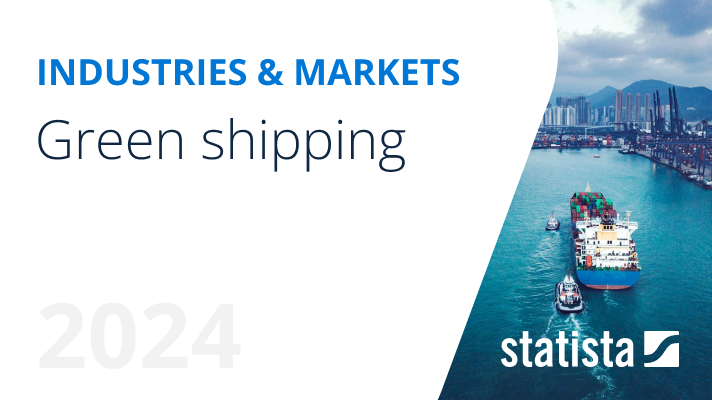Contact


Mon - Fri, 9am - 6pm (EST)
Mon - Fri, 9am - 5pm (SGT)
Mon - Fri, 10:00am - 6:00pm (JST)
Mon - Fri, 9:30am - 5pm (GMT)
Mon - Fri, 9am - 6pm (EST)

Statista overview report on the greening of the maritime shipping sector

The maritime industry's poor environmental performance has long constituted a big reputational challenge. Despite being the most efficient mode of transport, the maritime shipping sector generates two to three percent of the annual global greenhouse gas emissions, in addition to other air pollutants. The International Maritime Organization (IMO) sulfur cap was introduced in January 2020, forcing ship operators to either switch to cleaner fuels or undergo expensive scrubber retrofits. Only a couple of months later, the COVID-19 pandemic compounded the economic difficulties faced by shipping companies adjusting to the new regulations while at the same time upending the bunker fuel market. More recently, Bangladesh and Liberia joined the Hong Kong Convention in June 2023, fulfilling its requirements to enter into force in June 2025. This convention should improve the industry standards for ship dismantling and prevent risks to human health and the environment. Through a mixture of pressure from international organizations, governments, and the public, the sector seems to have finally set foot in the right direction.
The objective of this report is to provide an overview of the existing regulations and of the steps the maritime industry is taking to address its environmental issues in four areas: marine pollution, air emissions, decarbonization, and shipbreaking. The final chapter shows how ports can contribute to the greening of the industry.
Marine pollution
We provide information on industries, companies, consumers, trends, countries, and politics, covering the latest and most important issues in a condensed format.



Mon - Fri, 9am - 6pm (EST)
Mon - Fri, 9am - 5pm (SGT)
Mon - Fri, 10:00am - 6:00pm (JST)
Mon - Fri, 9:30am - 5pm (GMT)
Mon - Fri, 9am - 6pm (EST)